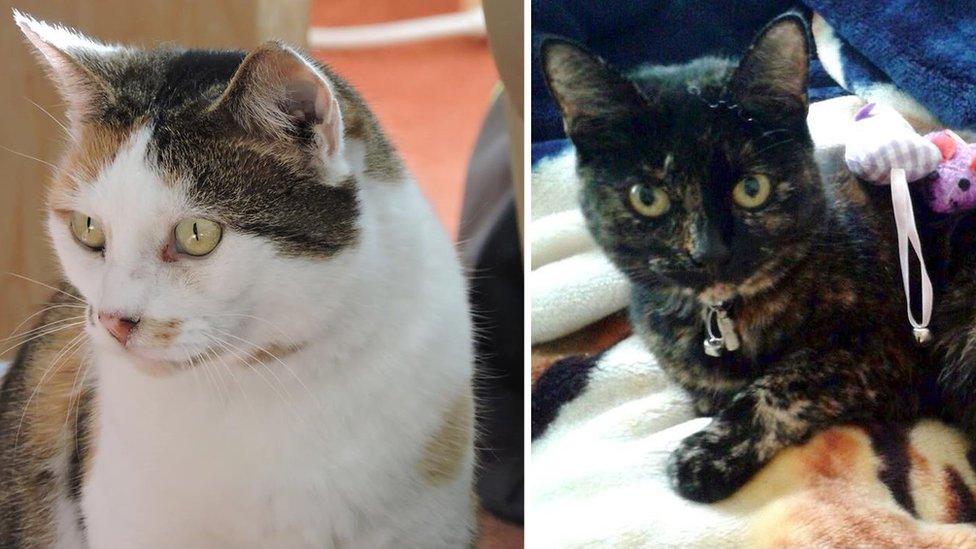'Croydon cat killer': Surrey forensic lab probes deaths
- Published
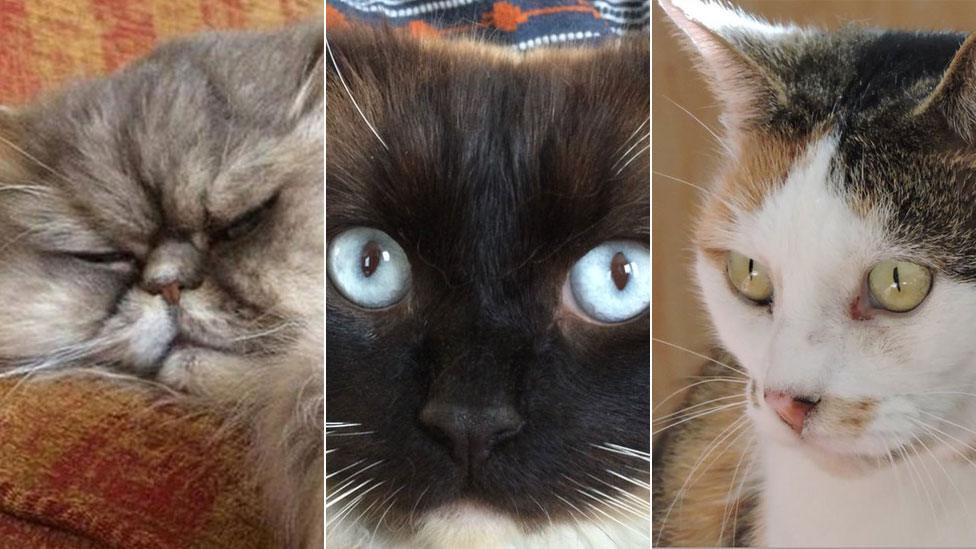
Bertie (left) from Surrey, Ukiyo from Addiscombe in south London and Missy from Coulsdon have all been killed
Forensic experts are re-examining the case of the "Croydon cat killer", thought to have mutilated about 250 cats across the country.
The killings began in London in 2015 but more have been reported across the UK, including in Manchester and Birmingham.
Many cats have been dismembered, with the deaths described as "gruesome" by animal welfare workers.
A new forensic lab in Surrey is to examine some corpses for new evidence.
Initially, foxes had been thought to be responsible but London charity Snarl revealed some 50 foxes had been found with identical injuries to the cats, and suggested five rabbit deaths and two swan decapitations could also be linked.
In Northampton, two owners found the dismembered bodies of their cats left in carrier bags on their doorstep.
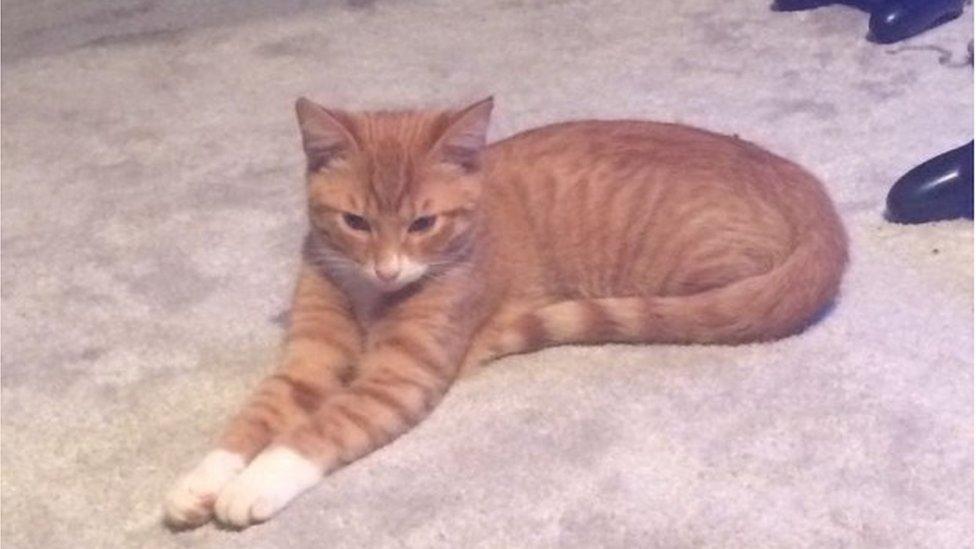
Rusty, a one-year-old cat, was deliberately mutilated and left on the doorstep of its owner's home
Dr Alex Stoll, lead forensic veterinary pathologist at the University of Surrey, said: "It is becoming increasingly well-documented that animal cruelty can be used as a component part of domestic violence.
"There is a growing body of evidence to indicate that people who harm animals are more likely to abuse humans."
His colleague Jo Millington said forensic experts would try to establish whether attacks had been carried out by a human or a scavenging animal.
"A big part of what we are doing is to be certain the animals have been subjected to human intervention," she said.
And they would also look for human DNA on the remains, she added.
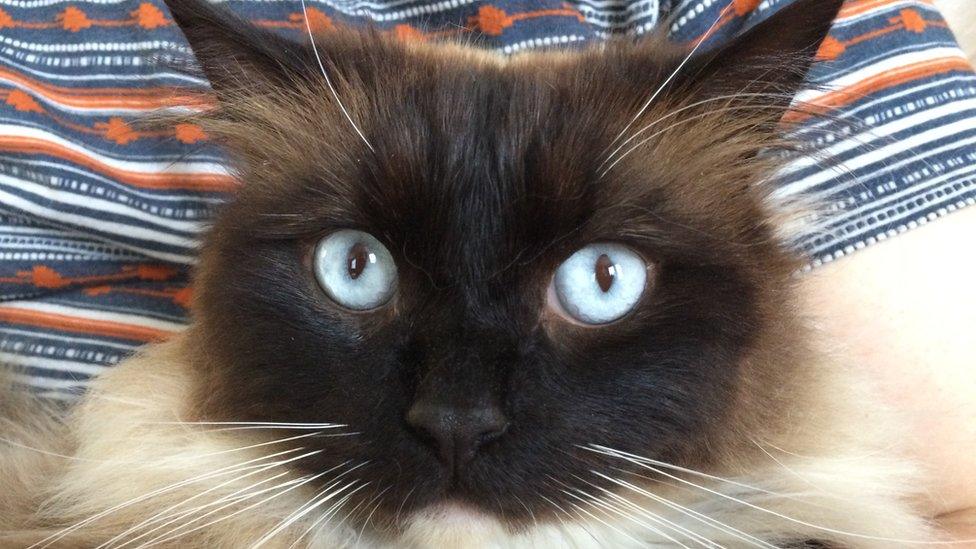
Ukiyo's remains were found in West Norwood
Dr Stoll, one of the experts behind the new lab dedicated to combating crimes against animals, said the service - set up in partnership with ArroGen Veterinary Forensics - aimed to increase prosecution success rates and arm agencies such as the RSPCA and police with evidence.
He said a current lack of forensic veterinary expertise meant some cases might not be prosecuted, or prosecutions would fail.
- Published16 September 2017
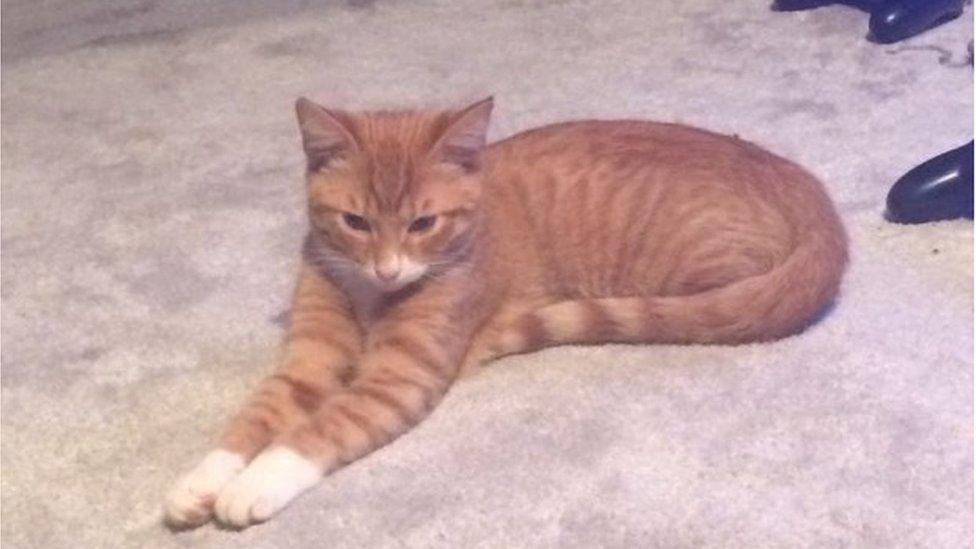
- Published16 November 2016
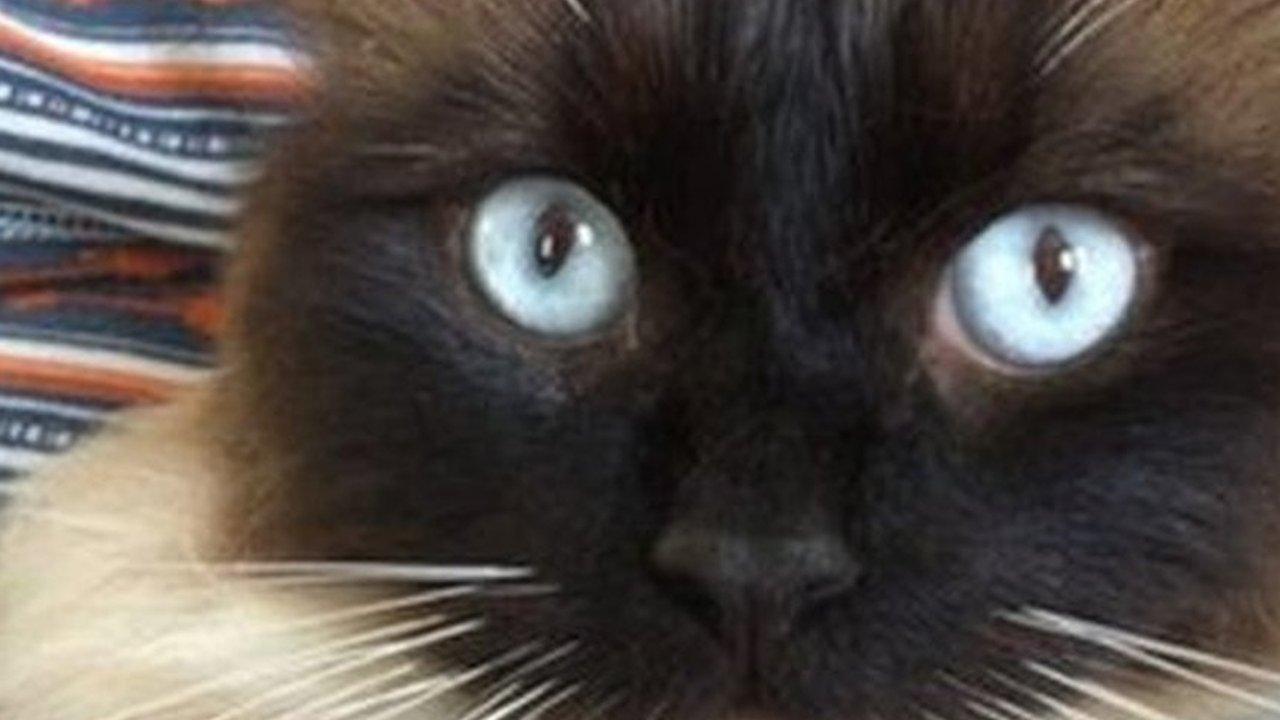
- Published16 August 2016

- Published19 February 2016
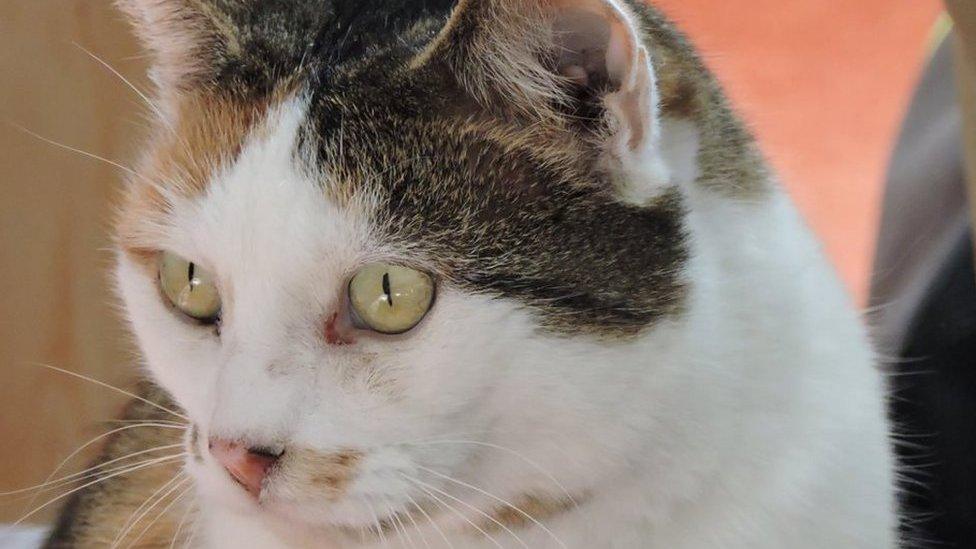
- Published12 December 2015
